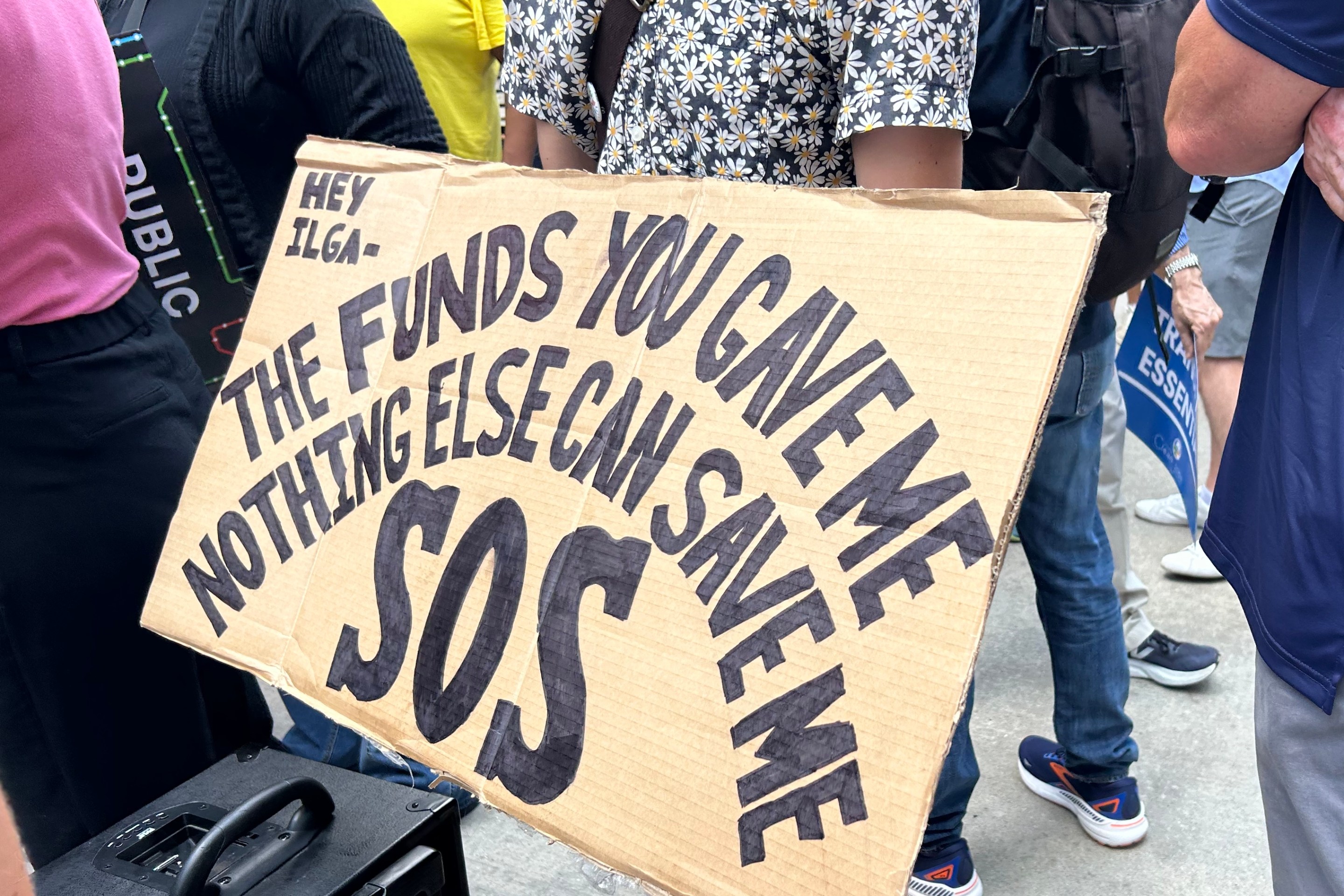
Local leaders agree that Chicago region’s public transit system, and Illinois transportation infrastructure in general, are sorely underfunded. However, it’s clear that the traditional strategy of relying on gas tax revenue to fund projects is no longer working. The state gas tax has been stuck at 19 cents a gallon since 1990, and due to inflation, the buying power of the revenue it generates has fallen over the past few decades.
Given the fact that Governor Rauner plans to cut almost $170 million from state funding for Chicagoland mass transit, and gas prices that are at their lowest point in years, it’s time for lawmakers in Springfield to show some backbone and approve a gas tax increase. Meanwhile, we need to consider creative ways of funding rail, roads, and bridges, such as a vehicle miles traveled tax and real estate value capture.
Transportation experts discussed these topics earlier this week at a panel titled “The Long and Winding Road,” part of the Metropolitan Planning Council’s symposium for Infrastructure Week 2015, “Broke, Broken, and Out of Time.” Panelists included former U.S. Department of Transportation deputy secretary John D. Porcari, the Brooking Institute’s Robert Puentes, and the Metropolitan Planning Council’s Peter Skosey. The Illinois Department of Transportation’s acting secretary Randy Blankenhorn moderated.
“Are we going to continue to fund infrastructure with smoke and mirrors?” Blankenhorn asked. “Are we going to continue to fund transportation on cigarette taxes and gambling? Let’s talk about user fees versus some of these more innovative or different types of revenue streams.”
Porcari argued that the political courage and innovation for raising money for transportation projects is more commonly at the local and state level nowadays, and not the federal level. “There a number of states that have raised the gas tax, indexed it, added new funding sources, used sales tax for transportation revenues, and they’ve all lived to tell the tale,” he said. “Those governors have actually survived.”
Puentes, pointed out that it’s not just Democratic states that are raising their gas taxes, but also Republican states like Wyoming. “So I think there is a myth that the gas tax is unpopular,” he said. “[Former Governor] Ed Rendell said that when they raised the gas tax in Pennsylvania, not one legislator who voted for the increase lost their election in the next cycle.”
Puentes noted that it’s easier to raise gas taxes at the local or state level than at the federal level. “The lower you get, the bigger the connection, a brighter line between the money that’s being raised, the projects that are being invested in, and then the [economic] outcomes at the end of the day,” he said. “People are willing to invest if they know what they’re getting.”
However, Porcari asserted that depending on gas tax to pay for roads, bridges, and rail won’t be sustainable in the long run. “That’s arguably a good thing, in the sense that what’s driving that are things like efficiency in the corporate average fuel economy and electrification of the fleet. Those are important for the nation but are accelerating the decline of [the gas tax] as a stable funding source.”
Porcari said that while there are a number of other funding alternatives, none of them are easy. “I point to the vehicle miles tax,” he said. “It’s fair in the sense that users either pay or not pay depending on whether or not they’re using the road network that day.” One issue with the VMT is that is can be relatively costly to collect compared to the gas tax, which is one of the cheapest taxes to administrate, he said.
Skosey brought up value capture as another way to fund transit. He noted that national studies like the Texas A&M Transportation Institute’s Urban Mobility Report consistently ranks Chicago as having bad traffic congestion. “But if you’re really only traveling 15 minutes in severe congestion to get where you want to go, versus traveling 45 minutes on a free-flowing highway, which is better, right?” he asked. “So that’s an important issue, accessibility. What that reveals is that transportation investments increase the value of adjacent properties.”
He pointed to Denver’s Union Station as a model of how value capture can be used to bankroll infrastructure projects. The planned renovations to the rail hub raised property values and spurred the development of nearby office buildings. The increase in property tax revenue is earmarked to help finance the station investment.
Skosey noted that the Illinois legislature is currently considering a bill that would allow for the creation tax increment financing districts in the vicinity of transit projects like the modernization of CTA ‘L’ lines and Chicago’s Union Station Master Plan. “That’s just another layer on the layer cake [of transportation funding], that’s not going to be the entire cake,” he said. “But it starts to broaden the conversation beyond simply user fees and the network itself to the broader picture of land use and accessibility.”





